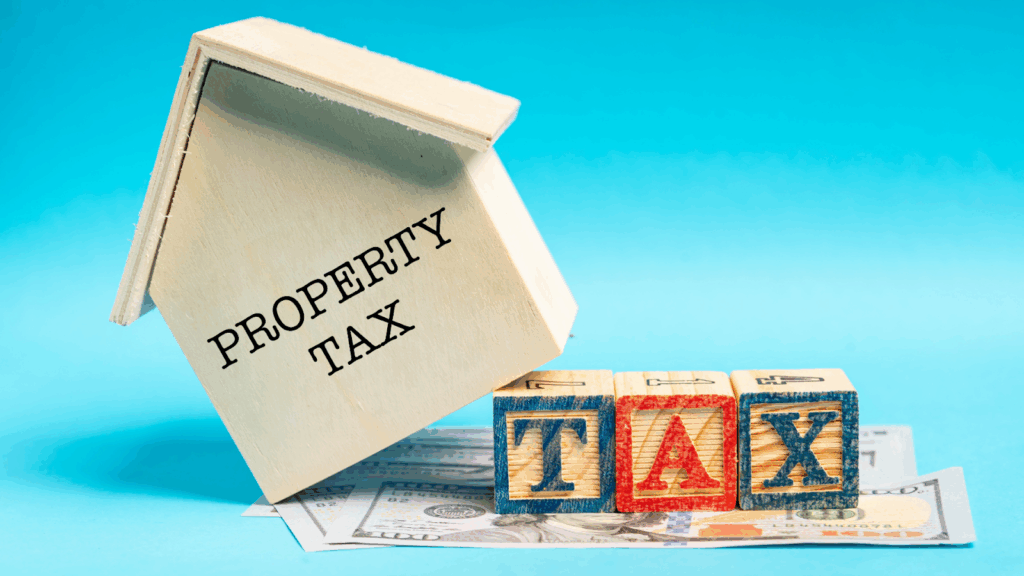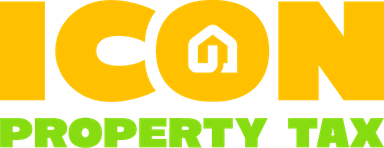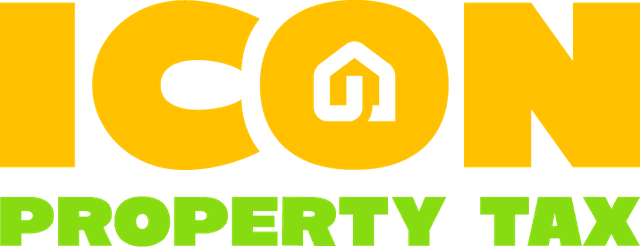Kane County Property Tax Overview: Rates, Assessments, And Billing Cycles
July 27, 2025
Key Takeaways:
- Billing Schedule: Property taxes in Kane County are billed in two installments – typically due in June and September – to make payments more manageable.
- Assessment Impact: Your property’s assessed value is the biggest factor in your tax bill. If left unchallenged, errors can lead to overpayment.
- Expert Help: Icon Property Tax helps owners appeal unfair assessments and develop long-term strategies to reduce their property tax burden.
Let’s talk about Kane County. With dozens of taxing districts, fluctuating market values, and a web of local regulations, understanding how property taxes work here isn’t just helpful – it’s essential. For homeowners, a miscalculation can mean overpaying by thousands. For commercial property owners, it can mean a serious hit to your bottom line. Yet too many people rely on assumptions or outdated information when it comes to assessments, tax rates, or billing schedules.
At Icon, we’ve helped Illinois property owners recover over $150 million in overpaid property taxes – and we’re just getting started. As the leading property tax advocacy firm in the region, we don’t just know the tax system – we know how to work it in your favor. Whether you own a single-family home or a multimillion-dollar commercial portfolio, our expertise in tax assessments, appeals, and valuation strategy is second to none.
In this piece, we will discuss the fundamentals of Kane County property tax, including how rates are set, how your property is assessed, and what to expect from the billing cycle, so you can take control of your tax burden with clarity and confidence.

What Is Kane County Property Tax?
Kane County property tax is a local tax levied on real estate within Kane County, Illinois. It serves as a primary source of revenue for essential public services, including schools, police and fire departments, libraries, and local infrastructure.
Every property owner in Kane County is responsible for paying property taxes based on the value of their property. This tax is not a flat amount – it varies depending on your property’s location and worth. Local taxing districts, such as municipalities, school districts, and park districts, all rely on property taxes to fund their operations.
In short, the Kane County property tax ensures communities have the resources they need to function effectively, while reflecting the real estate market and individual property values.
How Property Tax Rates Are Set In Kane County
Property tax rates in Kane County are determined by the total budget needs of various local taxing bodies – not by the county itself. These include school districts, municipalities, park districts, townships, and other special service agencies. Each entity calculates the funding it needs to operate and submits a levy request.
Once all levy requests are submitted, the Kane County Clerk calculates the tax rate by dividing the total amount requested by the total assessed value of all taxable properties in the district. This ensures each property owner pays a fair share based on their property’s value relative to the overall tax base.
It’s also important to note that tax rates can differ significantly depending on your property within Kane County. For example, someone living within a municipality with its own police and fire departments may have a different rate than someone in an unincorporated area.
These tax rates are published annually and can fluctuate based on changes in budget demands, assessed property values, and voter-approved referenda.

Understanding Property Assessments
Property assessments in Kane County are the foundation for calculating your property tax. An assessment estimates your property’s fair market value, determined by the Kane County Supervisor of Assessments and local township assessors.
In Illinois, properties are assessed at 33.33% of their fair market value. If your home is worth $300,000, your assessed value would be roughly $100,000. That assessed value is combined with the local tax rate to determine your final property tax bill.
Assessments are updated every four years during the county’s general assessment cycle. However, they can be adjusted more frequently if you improve your property, such as building an addition or finishing a basement.
The assessment process also includes an appeal window. If you believe your property has been assessed too high, you can appeal with your local Board of Review. Ensuring accurate assessment is one of the most effective ways to manage your tax burden.
Kane County Property Tax Billing Cycle Explained
The Kane County property tax billing cycle is a well-defined annual process that begins with assessments and ends with final payments. Understanding each stage can help you plan and avoid surprises.
Assessment And Levy (Fall – Early Winter)
Each year begins with local taxing bodies determining their budget needs and submitting levy requests. Simultaneously, assessments are finalized or updated.
Tax Bill Calculation (Spring)
Once assessments and levies are certified, the County Clerk calculates individual tax bills based on the assessed value of your property and the applicable tax rate. These are then forwarded to the Treasurer’s Office for billing.
Tax Bill Issuance (May)
Kane County typically mails out property tax bills in May. The bill includes the total amount owed, due dates, and a breakdown of which taxing districts are receiving your payments.
Payment Due Dates (Usually June And September)
Property taxes are paid in two installments. The first installment is usually due in early June, and the second in early September. Late payments may incur penalties and interest, so paying on time is essential.
Delinquency And Enforcement
If taxes are unpaid, the property may be subject to tax sale proceedings. Staying current is crucial to avoid legal complications.
What To Do If You Disagree With Your Assessment
If you believe your Kane County property tax assessment is too high, you have the legal right to challenge it. The evaluation directly impacts your tax bill, so ensuring its accuracy is essential – especially if you suspect an overvaluation.
The first step is to review your assessment notice, which is typically mailed out annually. Compare the assessed value with recent sales of similar properties in your neighborhood. If your property seems overvalued or inconsistently assessed compared to others, you may have grounds for an appeal.
You can then file an appeal with the Kane County Board of Review during the open filing period, which usually occurs shortly after assessment notices are sent. Your appeal can include supporting documents such as recent appraisals, comparable sales data, or evidence of property damage that affects value.
The appeal process is free but requires attention to deadlines and detailed documentation. If the Board of Review denies your appeal, you may escalate the case to the Illinois Property Tax Appeal Board (PTAB) or even to circuit court in some cases.
For many property owners, navigating this process can feel overwhelming. That’s where working with professionals like Icon Property Tax can be invaluable. We specialize in property tax appeals and can help you build a strong case – saving time and potentially reducing your tax burden.
How Icon Can Help With Your Property Taxes
At Icon, we understand that the property tax system in Kane County can be complex and sometimes frustrating. That’s why we’re here to help property owners take control of their tax burden – with precision, experience, and a results-driven approach.
Our team specializes in property tax appeal services across Illinois, including Kane County. We conduct detailed assessments of your property’s valuation, compare it with local market trends and comparable sales, and identify opportunities for reduction. If your evaluation appears inflated, we prepare and file a professional appeal on your behalf, ensuring all deadlines and documentation are handled correctly.
But we don’t stop there. Icon offers ongoing tax strategy support, helping homeowners, investors, and commercial property owners avoid overpayment year after year. We also stay current with changes in local tax laws and assessment practices, so you don’t have to.
Working with Icon Property Tax means working with a partner who puts your financial well-being first. Whether it’s a single-family home or a significant commercial asset, we aim to ensure you only pay what’s fair – nothing more.

Final Thoughts
Navigating the Kane County property tax system doesn’t have to be overwhelming – especially when you understand how assessments, rates, and billing cycles work together. From determining the fair market value of your property to knowing when to expect your tax bill, being informed empowers you to make smarter financial decisions.
Keep an eye on your assessment notices, track due dates, and don’t hesitate to question valuations that seem off. Whether you’re a first-time homeowner or managing a portfolio of investment properties, staying proactive is key.
And remember, if you ever need guidance or expert support Icon Property Tax is here to help. Our goal is simple: to ensure you only pay your fair share – and not a penny more.
Frequently Asked Questions About Kane County Property Tax Overview
What types of properties are subject to property tax in Kane County?
In Kane County, all real property – residential, commercial, industrial, and agricultural—is subject to property tax. This includes land and any structures built on it.
Are property tax exemptions available in Kane County?
Yes. Common exemptions include the General Homestead Exemption, Senior Citizen Homestead Exemption, and Disabled Persons’ Exemption. These can reduce your assessed value and lower your tax bill.
Can I view my Kane County property tax bill online?
Absolutely. The Kane County Treasurer’s website provides online access to current and past tax bills, payment history, and detailed breakdowns by taxing district.
What happens if I miss a property tax payment deadline in Kane County?
Late payments accrue interest at a rate of 1.5% per month. Continued non-payment may result in your taxes being sold at the annual tax sale, which can lead to liens on your property.
Is there a way to pay Kane County property taxes in advance?
Yes. While Kane County typically follows a two-installment system, you can prepay through the Treasurer’s Office before bills are issued, especially for budgeting or escrow purposes.
Do Kane County property taxes increase every year?
Not necessarily. Taxes may increase if local taxing bodies raise their levies or if your property’s assessed value increases. However, exemptions or stable assessments may keep your bill the same – or lower.
How does a property tax sale work in Kane County?
In a tax sale, third-party investors pay off delinquent taxes in exchange for a lien on the property. If the taxes remain unpaid, the investor can eventually seek ownership through a legal process.
Are Kane County tax rates higher than other Illinois counties?
Kane County’s rates vary by location and district but are generally in the mid-range compared to other counties in Illinois. Urban areas may have slightly higher rates due to more services.
Can I appeal my property taxes every year?
You can appeal your assessment annually during the open appeal period. However, only significant changes in property value or errors in your assessment typically warrant a new appeal.
Do I need an attorney to appeal my Kane County property taxes?
No, but having a property tax consultant or attorney – like those at Icon Property Tax – can improve your chances of a successful appeal, especially for complex or high-value properties.

